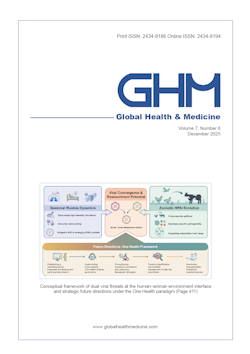Global Health & Medicine 2020;2(2):78-88.
Coronavirus disease 2019 (COVID-19): research progress and clinical practice
Kutsuna S
Coronavirus disease 2019 (COVID-19) is a respiratory tract infection caused by SARS-CoV-2. As of March 30, 2020, there have been 693,224 reported patients with COVID-19 worldwide, with 1,446 in Japan. Currently, although aspects of the route of transmission are unclear, infection by contact and by inhaling droplets is considered to be the dominant transmission route. Inflammatory symptoms in the upper respiratory tract persist for several days to 1 week after onset, and in some patients symptoms of pneumonia worsen and become severe. The presence of underlying diseases and advanced age are risk factors for increased severity. Diagnosis is based on detection of SARS-CoV-2 by polymerase chain reaction (PCR) testing of nasopharyngeal swabs or sputum. Symptomatic management is the main treatment for this disease. Although the efficacy of several agents is currently being tested, at present there is no effective therapeutic agent. To prevent infection, in addition to standard preventive measures, measures that counteract infection by contact and droplet inhalation are important. In addition, if procedures that cause aerosolization of virus are used, then measures that prevent airborne infection should be implemented.
DOI: 10.35772/ghm.2020.01031







